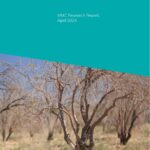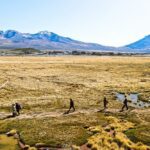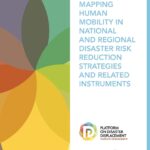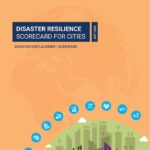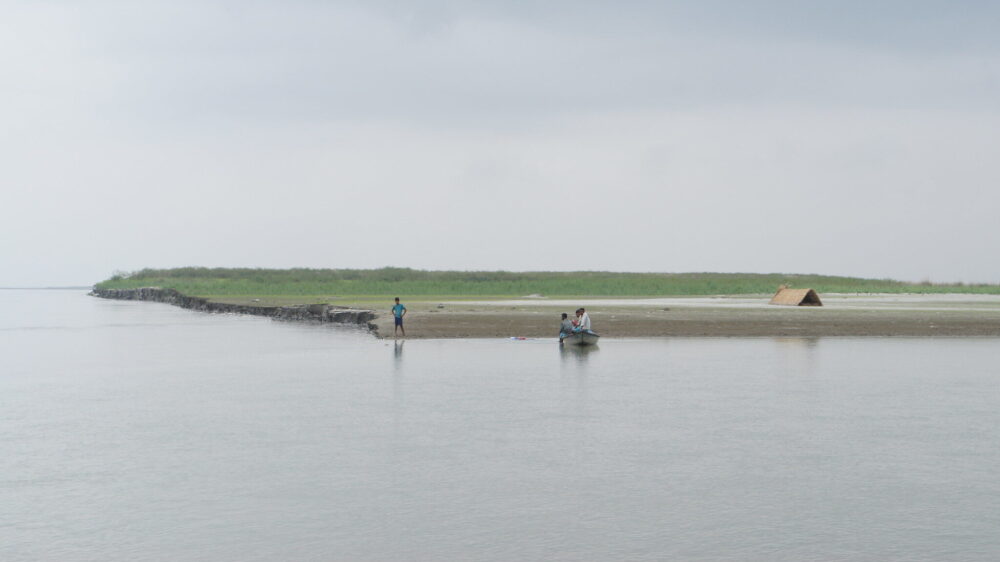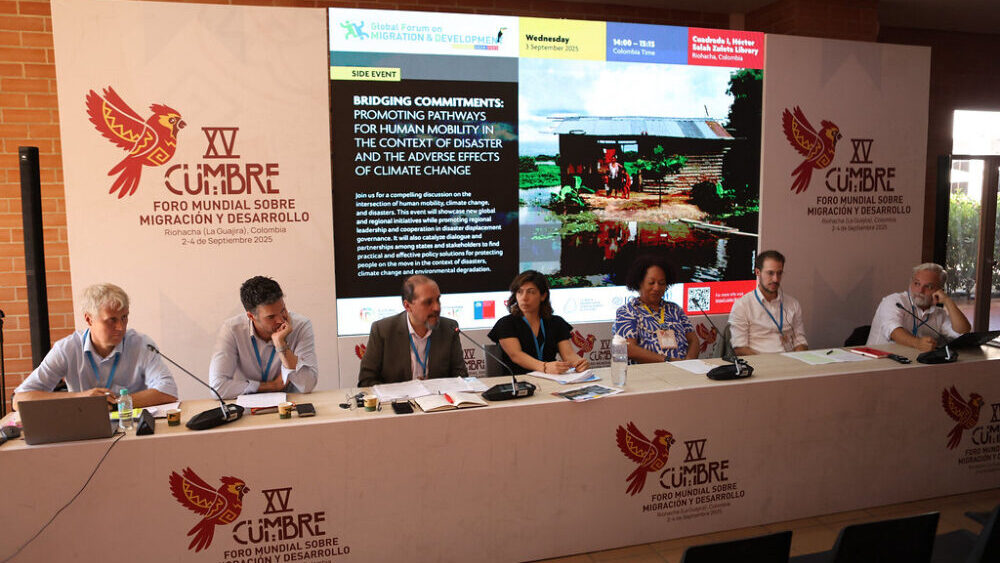Reporting back – Disability and Displacement in Early Action Working Session at the 9th Africa Regional Platform for Disaster Risk Reduction
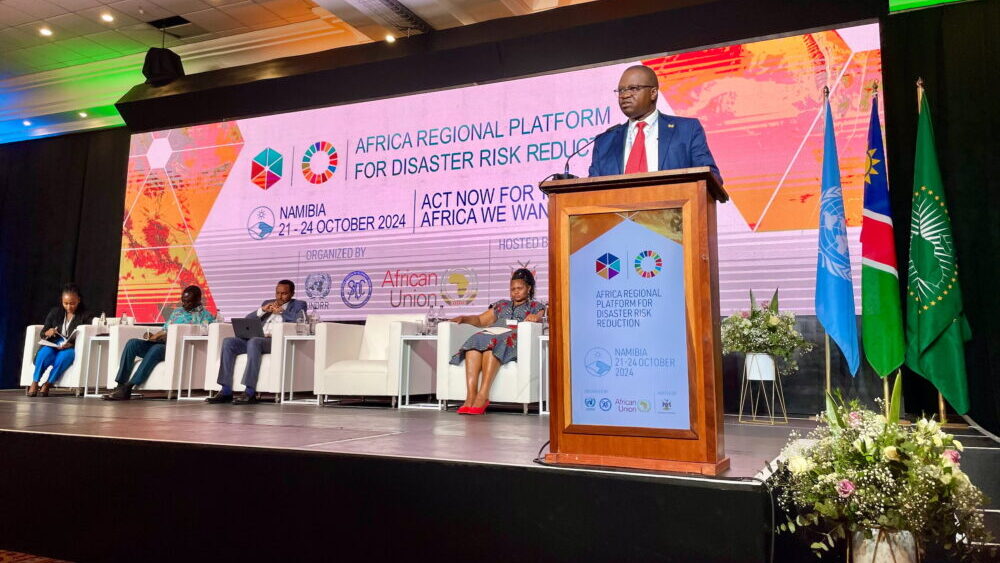
At the occasion of the 9th Africa Regional Platform for Disaster Risk Reduction in Windhoek, Namibia, on 23 October 2024, PDD co-organized a partner event on “Disability and Displacement in Early Action” together with the Christian Blind Mission.
The Regional Platform ran from 21-24 October 2024 and brought together over 800 participants from across Africa and beyond under the theme “Act Now for the Resilient Africa We Want.” The Eighth High-Level Meeting on DRR was convened on 24 October 2024, bringing together African Ministers and Heads of Delegation to adopt the Windhoek Declaration.
The Windhoek Declaration recognizes disaster displacement as an important concern and, in paragraph 19, calls
“upon Member States, regional economic communities and the African Union Commission to proactively address disaster-induced displacement at all levels by integrating disaster risk reduction, climate change and environmental management into development strategies and plans”
The interactive panel discussion was moderated by Ms. Slinganiso Homela, Regional Program Coordinator for a disability inclusive disaster risk reduction Program of the Christian Blind Mission. Dr. Duncan Ochieng, MBS, Director, National Disaster Management Unit, Government of Kenya, Dr. Ahmed Amdihun, Regional Programme Manager, IGAD Climate Prediction and Applications Centre (ICPAC), Ashllah Mmusi, Program Manager, Southern Africa Federation of the Disabled (SAFOD), Elisa Ravengai, Disability Inclusion Specialist, Federation of Organizations of Disabled People in Zimbabwe (FODPZ) and Adessou Kossivi, Regional Lead Africa, Global Network of Civil Society Organisations for Disaster Reduction (GNDR) were the panelists.
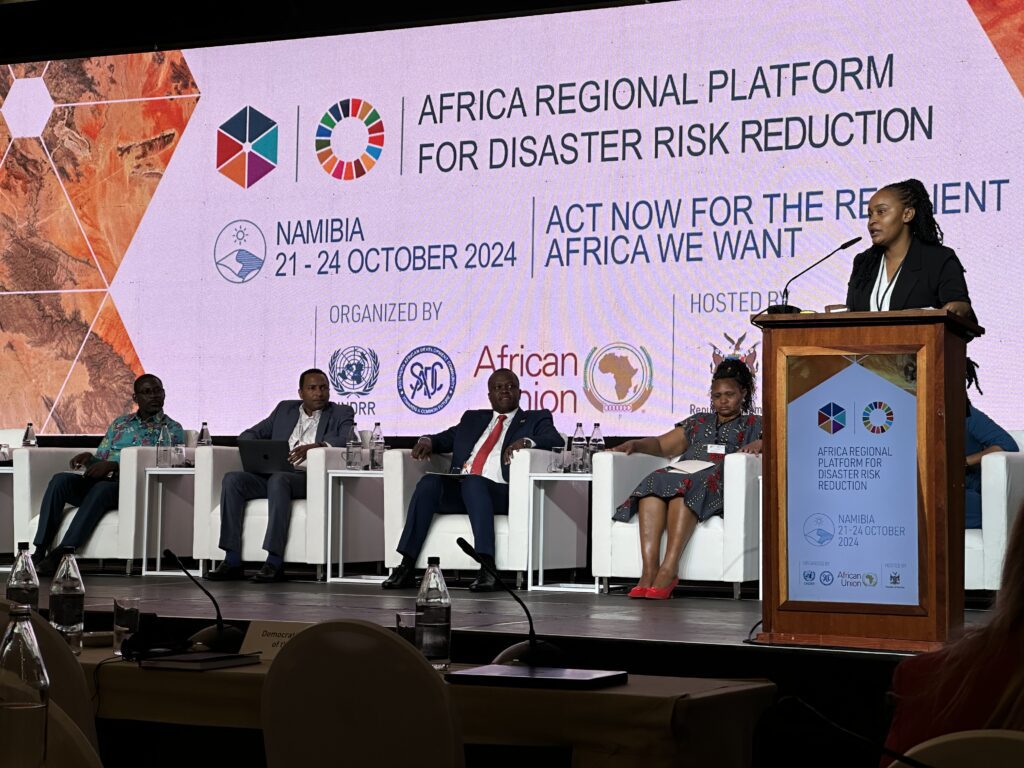
The working session brought together governments, international organizations, civil society actors, including national/regional organizations of persons with disabilities, and other relevant stakeholders to accelerate progress in advancing people-centred, disability and displacement sensitive DRR.
The session focused on the integration of disability and displacement considerations into disaster risk reduction (DRR) strategies to build resilience for vulnerable communities.
Ms. Slinganiso Homela opened the session by stating that
“Individuals and groups in vulnerable situations, such as persons with disabilities and displaced persons, are disproportionately impacted by disasters and the adverse effects of climate change. Displaced persons with disabilities are particularly vulnerable. Accordingly, the needs and perspectives of those most affected by disasters must be integrated into all aspects of disaster risk reduction.”
Dr. Ahmed Amdihun from ICPAC shared some statistics about disaster displacement in the Horn of Africa region, highlighting that the drought in 2020/2023 had displaced over 2 million people in Somalia, Kenya and Ethiopia. Almost one million people were reported to have been displaced in the region in 2023 alone due to floods.
He explained the relevant regional strategies and protocols that IGAD Member States have crafted to address these challenges, notably the IGAD DRM strategy which clearly stipulates the need for gender, age and disability inclusion in data collection, and also the IGAD Protocol on the Free Movement of persons with its stand-alone provision that “Member States shall allow citizens of another Member State who are moving in anticipation of, during or in the aftermath of disaster to enter into their countries”.
He then explained the different services provided by the IGAD Climate Center, such as the Greater Horn of Africa Climate Outlook Forum and the production of seasonal climate forecasts including early warning information packages that are sensitive to the special needs of the affected communities.
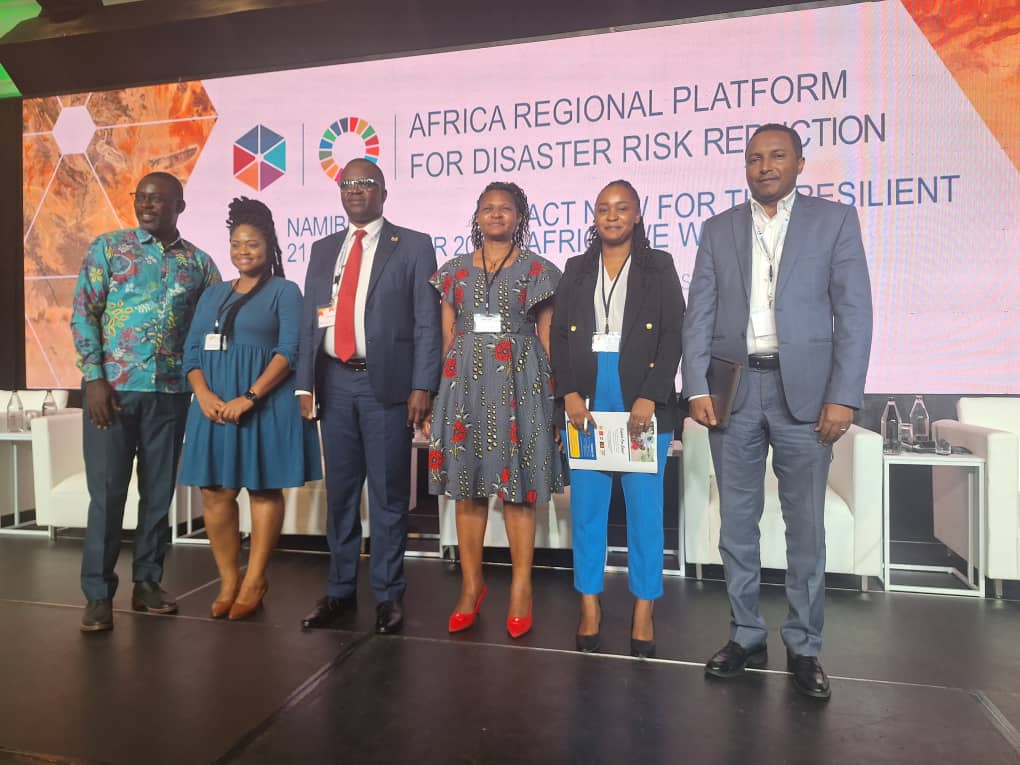
Panelists agreed that the participation and leadership of affected individuals and communities must be promoted and implemented in all aspects of DRR.
Ms. Ashallah Mmusi, Program Manager at SAFOD shared lessons learned from regional initiatives on disability inclusion in DRR, and Ms. Elisa Ravengai of FODPZ described the progress they have observed in ensuring disability inclusion in early warnings across Zimbabwe, formulating examples of effective practices for replication.
Mr. Adessou Kossivi elaborated on what he saw as the most significant opportunities for integrating disability and displacement considerations into DRR initiatives in Africa. He formulated recommendations on how African efforts on disability and displacement-inclusive DRR can influence global discussions, paving the way for the outcomes of the African Regional DRR Conference being considered and influencing upcoming conferences such as the Global Platform for DRR scheduled to take place in Geneva, Switzerland in June 2025.
“It is important for Africa to champion the inclusion of different actors including people with disability. Simply because from African’s culture to solution building inclusion is key” said Mr. Kossivi.
He emphasized the need to recognize the impacts of displacement on communities and called decision makers, lawyers, and financial partners to pursue an integrated approach to this phenomenon and find adequate ways to mitigate these disaster impacts.
The working session highlighted effective practices to reduce the vulnerability and build the resilience of marginalized groups in the context of disasters. Examples of how governments and other stakeholders in the region have addressed and integrated disability and displacement considerations into their DRR measures were provided.
The event underlined that the engagement of affected communities in the planning and implementation of DRR policies and plans is key to effectively reducing disaster and climate risks. Involving affected persons such as displaced persons or persons with disabilities, and strengthening their leadership ensures that their unique needs and capacities are considered.
During the event it was emphasized that displacement in the context of climate change and disasters is a growing issue in Africa, impacting millions annually. The Kampala Ministerial Declaration on Migration, Environment and Climate Change and the IGAD Free Movement Protocol aim to address cross-border displacement, enabling displaced communities to access resources across borders during crises. Panelists also noted that disability-inclusive strategies must be integrated into all displacement-related policies, as displaced persons with disabilities face compounded vulnerabilities. The need for early warning systems tailored to displaced populations, as well as increased cooperation among African states to address displacement challenges, was underscored.

